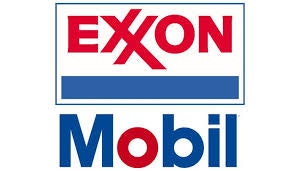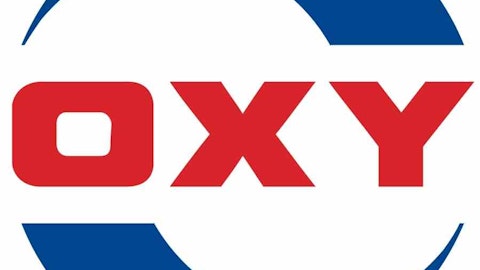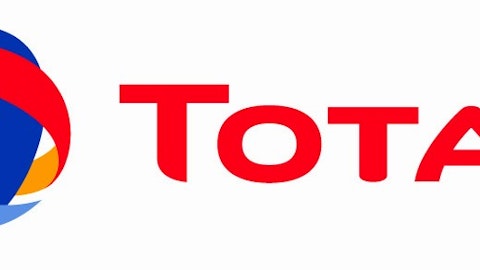
In the wake of disappointing results, should investors view the quarterly reports as one-offs for each company? Or, is this a harbinger of things to come for Big Oil?
Storm clouds as dark as crude oil
Exxon Mobil Corporation (NYSE:XOM) whiffed badly on earnings, representing the company’s biggest miss since 1999. There’s no sugarcoating the results, and investors are likely scratching their heads as to how such a powerful company could come up so woefully short.
All told, second-quarter net income fell a whopping 57% from the prior-year period, due to weaker refining results and lower production. Revenue fell 16% year over year, and the company’s $1.55 in per-share profits was the lowest EPS total since September 2010.
Meanwhile, Royal Dutch Shell plc (ADR) (NYSE:RDS.B) reported a 57% drop in its own quarterly net income. Shell’s problems were distinctly different from Exxon Mobil Corporation (NYSE:XOM)’s. Royal Dutch Shell plc (ADR) (NYSE:RDS.B) attributed its poor quarter to attacks on its operations in Nigeria, in addition to a significant write-down of its North American shale oil fields. Furthermore, production of oil and gas equivalents declined 1.3% from a year ago.
On a positive note, it should be mentioned that despite their big misses, Exxon Mobil Corporation (NYSE:XOM) and Royal Dutch Shell plc (ADR) (NYSE:RDS.B) are two very shareholder-friendly companies.
ExxonMobil increased its dividend by 21% in 2012 and then again by 11% early this year.
This year’s dividend bump represented the 31st consecutive annual dividend increase from Exxon Mobil Corporation (NYSE:XOM). According to the company, its dividend has grown by 6% compounded annually over the past 30 years.
Royal Dutch Shell plc (ADR) (NYSE:RDS.B)’s dividend yield is much higher, at nearly 5.5% annualized. And, it’s not as if the company’s payout is standing still. The stock recently increased its dividend by nearly 5%.
For investors who’d prefer to stick with an oil company firing on all cylinders, ConocoPhillips (NYSE:COP) handed in a quarterly report that clearly pleased the market more than its two rivals did.
ConocoPhillips (NYSE:COP)’s second-quarter earnings declined, but the results were higher than analyst estimates, and the company raised its production guidance for the year.
And, if you exclude special items, ConocoPhillips (NYSE:COP)’s adjusted earnings per share actually increased, to $1.41 per share from $1.19 per share year over year.
Revenue fell slightly less than 5% from the year-ago period, but results in future quarters should be boosted by the fact that ConocoPhillips (NYSE:COP) now expects to produce an average of 1.52 million barrels of oil equivalent per day, versus its previous estimate of 1.49 million barrels.
And, it’s worth noting that ConocoPhillips (NYSE:COP) , like its competitors, is also extremely shareholder-friendly. ConocoPhillips (NYSE:COP)’s dividend yield exceeds 4%, and the company recently increased its dividend.
The Foolish bottom line
In times like these it’s important to remember that one quarter doesn’t make or break a company. Exxon Mobil Corporation (NYSE:XOM) and Royal Dutch Shell plc (ADR) (NYSE:RDS.B) are two giants in the integrated energy industry. Investors may need to temper their growth expectations, but that has more to do with the law of large numbers than a legitimate problem with either company.
Royal Dutch Shell holds a market cap in excess of $200 billion, and Exxon holds double that in market value. Moreover, both companies hold strong balance sheets, trade for modest valuations, and provide compelling dividend yields.
On the topic of dividends, I’d prefer Royal Dutch Shell to Exxon for its outsized yield. Exxon’s 2.75% yield still beats the 2% yield on the broader market, but Royal Dutch Shell’s 5.5% yield is one of the best in the space.
I can understand investors who’d prefer to stick with the winner, and in the current environment, Conoco is outperforming its rivals.
At the same time, although investors should always remain diligent and continue to monitor each company going forward, I see nothing that changes my view of either ExxonMobil or Royal Dutch Shell. All three stocks are likely to be long-term winners and should be bought with confidence.
The article Should Poor Earnings From Big Oil Make Investors Panic? originally appeared on Fool.com and is written by Robert Ciura.
Robert Ciura has no position in any stocks mentioned. The Motley Fool has no position in any of the stocks mentioned. Robert is a member of The Motley Fool Blog Network — entries represent the personal opinion of the blogger and are not formally edited.
Copyright © 1995 – 2013 The Motley Fool, LLC. All rights reserved. The Motley Fool has a disclosure policy.





